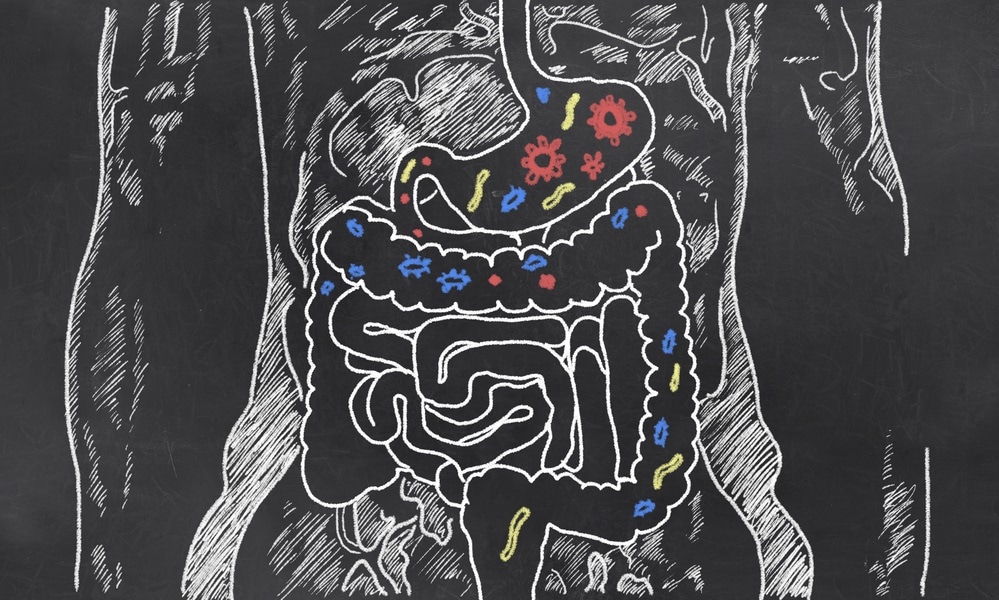
Mendelian randomization employs complex statistical data analysis of large populations to investigate cause and effect, rather than simply establishing an association.
We found evidence that the presence of an unclassified type of bacteria from a bacterial group called Bacteroidales increased the risk of bowel cancer by between 2-15%,”This means that, on average, people who have this particular type of bacteria in their gut may be at a slightly increased risk for bowel cancer, compared with people who do not have it.
Dr. Kaitlin Wade, University of Bristol (UK)
“We were able to use Mendelian randomization to understand the causal role that these bacteria may have on the disease. Our findings support previous studies that have shown that Bacteroidales bacteria are more likely to be present, and in larger quantities, in individuals with bowel cancer compared to those without the disease," says Wade.
About the gut microbiome
The microbiome refers to the community of microbes that occurs naturally in the body. A growing body of research has pointed towards the gut microbiome as playing a role in the body’s susceptibility to disease.The bacteria within the gut maintain intestinal health by aiding digestion and protecting against infection. The gut microbiome varies between individuals depending on their genetic makeup and their environment. It stays relatively unchanged throughout a person’s lifetime unless it is affected by illness, antibiotics or dietary changes.
Wade says that many studies involving mice and humans have demonstrated a link between the gut microbiome and bowel cancer but that few have discerned which components actually cause cancer. They also have not been able to show whether the disease itself causes changes in the gut microbiome or whether the link is accounted for by other factors that cause variation.
I was interested to see whether variation in the human gut microbiome, like the number of bacteria or simply the numbers of different types of bacteria, can have an impact on bowel cancer,”
Dr. Kaitlin Wade, University of Bristol (UK)
The advantage of using Mendelian randomization
“We don't have to edit anyone's gut microbiome directly by giving antibiotics or probiotics in a randomized trial or waste time waiting to see whether people within the population get colorectal cancer. We just need studies that have already got this information measured," said Wade.
A genome-wide association study
The researchers used data available for 3,890 people who participated in the Flemish Gut Flora Project, the German Food Chain Plus study and the PopGen study and 120,328 participants in the international Genetics and Epidemiology of Colorectal Cancer Consortium.These studies, which are called genome-wide association studies, look for small genomic variations that occur more frequently in people with a certain disease or characteristic than in people who do not have the disease or characteristic.
The team found that genetic variation in certain parts of the genome was associated with variation in 13 types of gut bacteria and that people with a certain type of Bacteroidales were at an increased risk for bowel cancer, compared with people without these bacteria.
The findings need replicating in other studies
Wade says the findings need to be replicated in other studies using different datasets and methods before the implications for human health can be fully understood. The exact species of Bacteroidales needs to be classified and more research is needed into why human genetic variation can alter the gut microbiome.Even if the results demonstrate that these bacteria may cause bowel cancer, it cannot be known whether trying to alter them to reduce bowel cancer risk might have other unforeseen effects on other aspects of health, explains Wade.
“However, I believe that we are at the forefront of understanding and appreciating the complexity of these relationships - not only those between the human gut microbiome and disease but also between human genetic variation and the gut microbiome itself - which is required to appropriately use these methods to appraise causality," she concluded.
Researchers identify certain gut bacteria that may be involved in causing bowel cancer. Eurekalert. Available at: https://www.eurekalert.org/pub_releases/2019-11/ncri-ric110119.php






No comments
Post a Comment